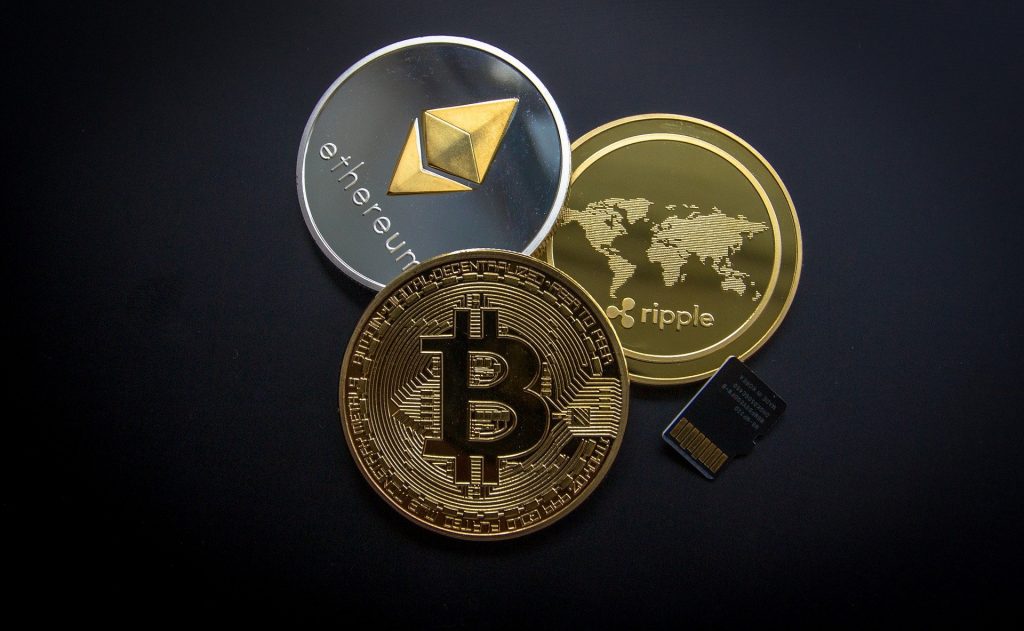One upside to the 2020 pandemic is that the lockdowns have accelerated innovative solutions, sparking a boom in startups worldwide. And existing startups are attracting more interest than ever from individual and institutional investors. Venture capital (VC) firms invested $128.3 billion in startups in 2021, up $40 billion from a year earlier and breaking the $100 billion mark for the first time, reported Reuters in January.
That has caused a spike in the number of startups becoming “unicorns,” with valuations reaching $1 billion. In the second quarter of 2021 alone, 136 startups achieved unicorn status, more than in all of 2020. That is 50% more than the total number of startups whose valuations exceeded $1 billion between 2013 and 2017, as tallied in a June 2020 report from Soject, a digital platform offering software solutions for startups.
That means valuations for each startup are rising much faster than the number of available deals. “Valuations are now common at 40x to 50x the last 12 months of revenue, with some rounds at 100x the next 12 months,” wrote Shomik Ghosh, a principal at the specialized VC firm Boldstart Ventures, in a July 2021 tweet.
That phenomenon is starting to emerge in Egypt. “We are at a very nascent stage. For the past 10 years, many were building [Egypt’s startup] ecosystem at the foundation level,” Ayman Ismail, Abdul Latif Jameel Endowed Chair of Entrepreneurship & AUC Venture Lab Director, told AmCham in a June webinar discussion. “However, some sectors are heating up to a funny place where … valuations are probably ridiculous.” However, he added that it has yet to infect all of Egypt’s startup landscape. “Some sectors are … behind, where more money can come.”
The phenomenon won’t likely hurt the economy at large. “A [venture capital] crash … would not destabilize the financial system because startups have low debts,” said The Economist in November. However, it could put entrepreneurs with companies valued beyond what their fundamentals dictate out of business.
Startup heaven
One of the drivers of those high valuations is that more people have more money free than ever before. “Governments reacted quickly … and injected unprecedented amounts of cash into the economy,” wrote Daniel Faloppa, founder and CEO of Equidam, a platform investors use to assess the value of startups, in December on the company’s blog. Rising uncertainty because of COVID-19 variants is also affecting spending. “As a result, all newly minted cash got invested in assets, driving the price of pretty much everything skyward.”
Other factors include digitization. “A greater number of customers are now more easily reachable through scalable digital channels, accelerated by COVID-19,” wrote Faloppa. Meanwhile, fewer companies have fundamental problems in their business models given the “proliferation of knowledge” via free platforms and discussion forums.
Digitization also reduces operational costs, lowering one barrier to starting and running a business. With the increasing availability of talent and self-taught tech enthusiasts, there is “almost no factor … lowering digital startup potential, as opposed to other industries,” wrote Faloppa.
In an August blog for EU-Startups, Eric Weber, the founder of the startup accelerator SpinLab, noted that more entrepreneurs are seeking venture capital funding, seeing it as a secure way to secure sufficient cash and grow.
At the same time, they are becoming increasingly protective and don’t want investors to have significant control over their companies, noted the Soject report. “The founders instinctively tend to control the number of transferred shares,” it said. “They inevitably try to divert fewer stakes to venture capitalists by [raising] their valuations to attract more capital for fewer shares.”
Investor sentiment
Pete Flint, a general partner at venture firm NFX, noted in an October Inc. magazine blog that historically low interest rates across most economies also drive investors to startups.
Additionally, free stock investment platforms such as Robinhood have made bourses potentially more volatile, as evidenced in January 2021 when the brick-and-mortar video game store GameStop saw its stock rise from $20 to above $400 and then plummet to nearly $50 in less than a month. That has spooked some institutional investors. “These trends make it harder for any stock picker to beat the market indices, [driving] institutional capital toward [venture capital],” noted Flint.
Investors see that entrepreneurs “solve … impossible problems and have a major impact on society,” said Flint. Think Airbnb and Instacart, which created a new economic model: the sharing economy. “This spirit drives them to create entirely new markets. The winners have an opportunity to seize … significant market share before anyone else can catch up.”
The shifts in investor sentiment translate to more opportunities for venture capitalists in non-priority markets. Weber noticed many U.S. funds opening offices on other continents to “escape [rising] valuations in the U.S.” VC funds in Europe also seek startups beyond their borders, some of which are government-backed.
In addition to VC firms, many other types of investors see startups as an “interesting asset class,” said Weber, including family offices, business angels and institutional investors. Startups are also attracting attention from hedge funds, mutual funds and sovereign wealth funds inside and outside the United States, Sumi Das, partner at Alphabet’s private equity arm, CapitalG, told Fortune Magazine in October.
Additionally, startup investors make decisions much quicker than before the pandemic. “After the initial meeting with a founder, investment decisions can be made in a matter of days,” said Das, where it used to be a two to three-week process.
The Soject report said the rush of investors is causing overvaluations. “They overestimate the startup … arguing the benefit … will offset the overstatement in the future,” it noted.
That is evident in how easier it has become to achieve valuations of $1 billion or more. Will Gornall and Ilya Sterbulaev, professors at the University of British Columbia and Stanford, published research in 2021 showing that 51% of America’s unicorns “had an overestimation problem.” An additional 22% of those overvalued startups exceed 100% of their fair value.
Egypt’s startup boom
Those factors have a noticeable impact on Egypt’s startup ecosystem. Rafeh Saleh, the founding partner at Cubit Ventures, told the AmCham webinar audience that Egypt had its first unicorns (Fawry and SWVL) in one year, and there are “more local startups that are on their way to that $1 billion benchmark.”
Ismail of AUC sees 20 to 30 local startups securing a second round of financing this year, and “10 of them will be unicorns” within five years,” he said. “That is a good pipeline … The market is starting to unlock in specific sectors, but that can change year to year.”
Another of the webinar panelists, Yousef El Samaa, managing director of Falak Startups, believes the boom in Egyptian startups should be sustainable because entrepreneurs are disrupting the industries where they work and are not sector outsiders. Samaa said this ensures high-quality startups and that “the next waves will [almost always] be better.”
Other incumbent factors in Egypt also boost startup proliferation. They include resilient GDP growth, a fast-growing young population, and the government’s strategy to digitize the economy. “We are moving up the curve,” said Ismail. “Funds are coming, and valuations are more entrepreneur-friendly.”
Risky money
Weber of SpinLab noted that as valuations increase, startups could easily overshoot their fair value based on fundamentals. “Big valuations look quite sexy for founders and … investors,” Weber told EU-Startups magazine in August. That could prove risky.
The higher the valuation, the more pressure entrepreneurs face to boost revenue. In some cases, those ambitions are beyond the startup’s capabilities. Also, while more cash inflows mean more flexibility to test new things, that could quickly “provoke [allocation] of money in the wrong directions,” said Weber. “Getting more money opens the door for wasting money.”
A third risk is that securing massive funding could make startups “uninvestable,” said Weber. “Especially in early rounds, the valuation is usually not based on business fundamentals, but … softer aspects such as team and vision.” If that team and vision cannot deliver the results within the investment timeline, it impacts the startup’s ability to attract later funding.
For startup investors and venture capitalists, investing in overvalued startups would “narrow the number of exit options dramatically and … the likelihood of commercial success,” noted Weber.
Flint of NFX stressed that the rush of cash inflows could go into startups doomed to fail. “Capital alone never guarantees success for any startup,” he said. “It can’t fix the fundamentals of a flawed business model or build amazing products or build a healthy workplace culture that attracts top talent.”
Burstable bubble?
In October, Lise Buyer, founder of the advisory firm Class V Group, told Fortune that this overvaluation phenomenon gives “the creeps … to investors who remember the dot-com bust two decades ago.”
That crisis occurred when U.S.-listed internet-based tech companies saw a fivefold rise in stock prices from 1995 to 2000. At the time, investors were betting on benefits the internet might bring to all aspects of life, business and government. While most of the cash came from established venture capitalist funds, a significant portion was speculation and fad-based.
However, startup tech firms realized they overestimated their profit projections just as that money rushed in. As a result, tech stocks crashed as investors exited the sector, losing 76.8% of their values by 2002. That also dragged down household names such as Cisco, Intel and Oracle, whose stocks lost more than 80% of their value. It would take the Nasdaq nearly 15 years to recover.
That said, Buyer doesn’t believe that would happen with startups now: “We aren’t seeing the crazy get-me-in-at-any-price behavior. It is a really healthy position.”
Flint agrees the startup landscape is balanced: “While the market for top talent is still competitive because there are more startups than ever, we’re nowhere near the shortages of the dot-com boom.”
Some experts noted the risks facing overvalued startups could come from changing government policies to keep their economies from tanking amid new COVID-19 variants. Currently, the risk is if and when governments, particularly the United States, raise interest rates to compensate for high inflation. (See our American Impact section for more details). “As long as monetary authorities are not raising interest rates and don’t start sucking money out of the market, this trend [of startups getting higher valuations] is most likely to continue,” noted Weber.
In December, Gopal Srinivasan, chairman and managing director of TVS Capital, told CNBC TV18 that startups and their investors need to look at the long-term picture, regardless of risks. “Every time there has been a bubble, and when you fall off the precipice, it looks terrible,” he said. “But when you look at it in a 10-year time frame, it is managed; it recovers in two or three years.”







